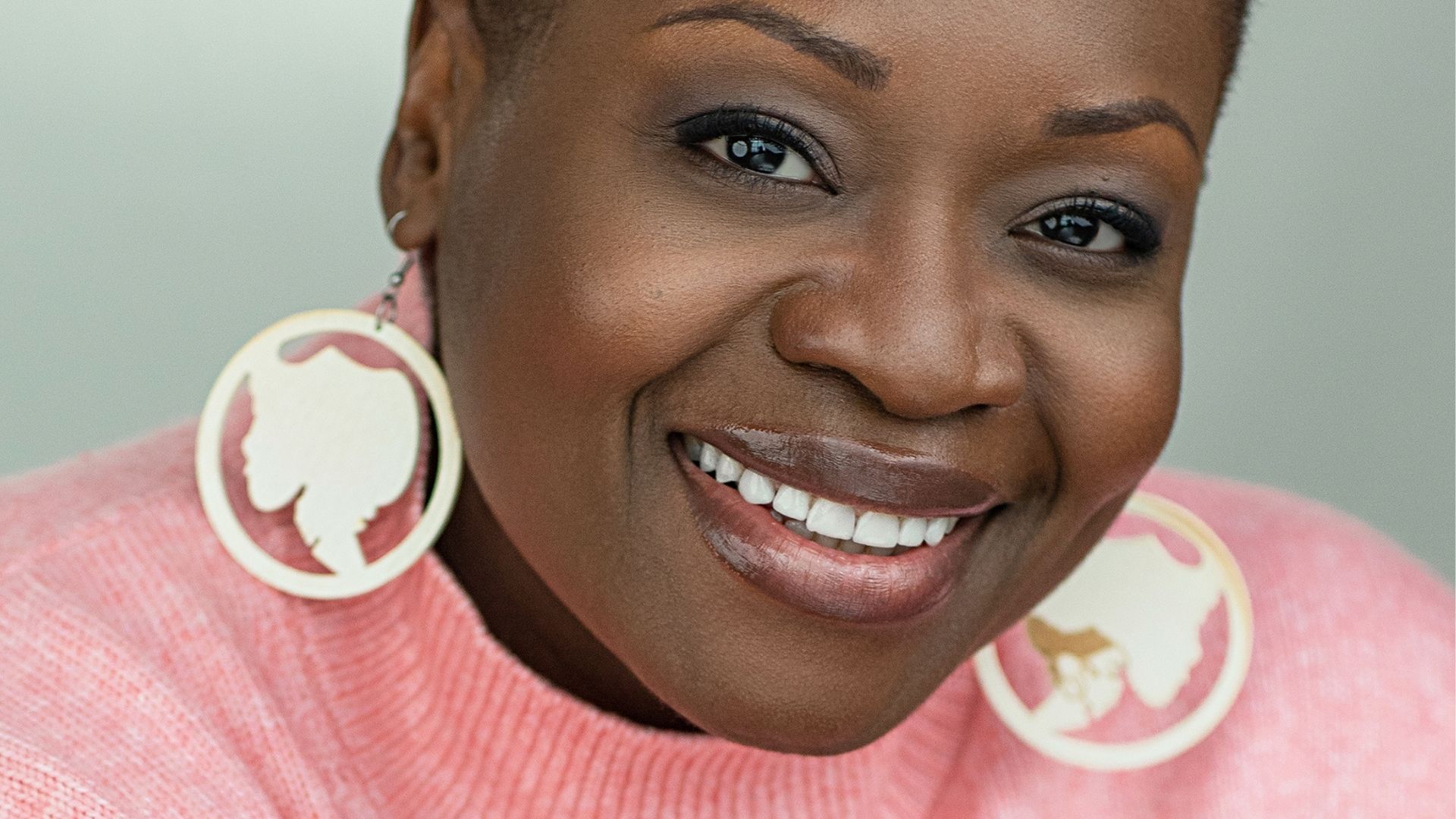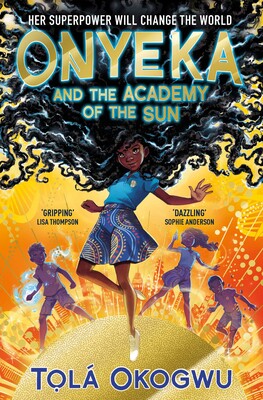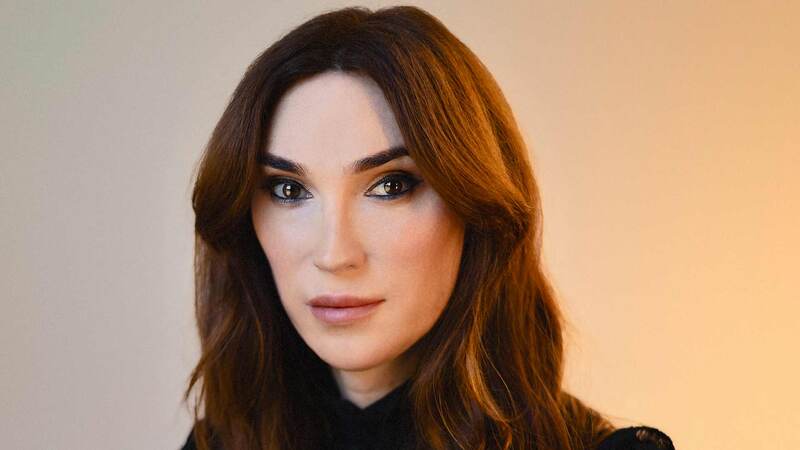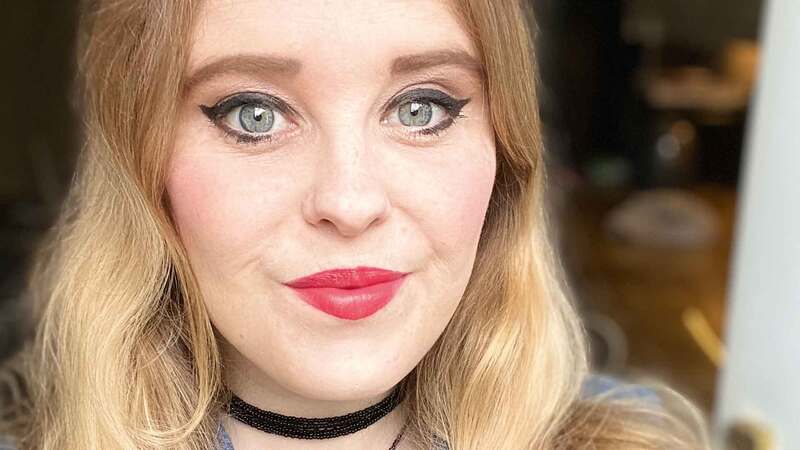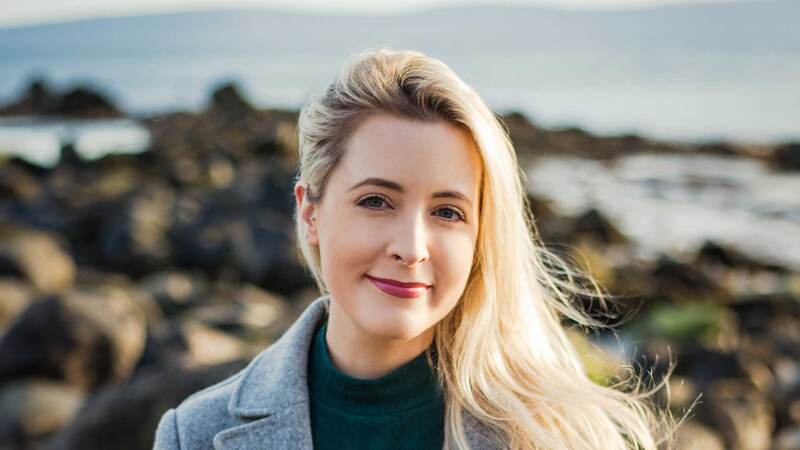You are viewing your 1 free article this month. Login to read more articles.
Tọlá Okogwu discusses the power of identity and Nigerian history in her new book
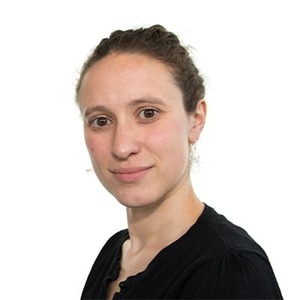 Charlotte Eyre
Charlotte EyreCharlotte Eyre is the former children’s editor of The Bookseller magazine, and current children's books previewer. She has programmed ...more
Tolá Okogwu was on the cusp of giving up on her writing dream—now her novel is about to be a Netflix series.

Charlotte Eyre is the former children’s editor of The Bookseller magazine, and current children's books previewer. She has programmed ...more
Tolá Okogwu was almost at the point of giving up on her writing career when her agent, Claire Wilson, sent the manuscript for her new action adventure, Onyeka and the Academy of the Sun (Simon & Schuster Children’s), out to publishers. The British-Nigerian author had been working on the text for some time but the writing game wasn’t paying the bills and was taking up a lot of time. Her musician husband’s career had been decimated by Covid-19 and she realised she was at a point where this might be the final roll of the dice.
Okogwu was so burned out she couldn’t even finish the manuscript. “When I signed with Claire, I said, ‘You will have to go out with this on a partial, I can’t finish it. I don’t have the time. I don’t have the capacity’".
Luckily, publishers saw the potential (Okogwu received more than one offer, finally opting to go with S&S Children’s) and the resulting novel is a glorious affair—a sci-fi, action movie-inspired fantasy about a girl who realises her hair is her superpower. The novel starts in the UK, where the heroine Onyeka is trying to fit her hair into a swimming cap so she can go into the pool with her friend. But when that friend gets into trouble in the water, it is Onyeka’s hair that gives her the power to save the day. She is subsequently whisked off to the Academy, a school in Nigeria where children with special powers, known as Solari, are trained, and the course of her life is changed forever.
Our hair is the number one identifier of who we are. No other ethnicity has hair like ours and there is a lot of negativity surrounding it that we are only just trying to unpick as a community
As well as being a writer Okogwu is a hair-care educator, and the idea for Onyeka came from thinking about girls who have been taught to hate their hair. But what if they realise the thing they think of as being a flaw is actually one of their greatest strengths?
“I’m very aware of the negativity that surrounds Afro-textured hair,” she says. “Our hair is the number one identifier of who we are. No other ethnicity has hair like ours and there is a lot of negativity surrounding it that we are only just trying to unpick as a community. It’s a journey most Black women go through at some point. Once I realised hair was a metaphor for greater issues of identity and self-acceptance for Black women and Black girls, it felt right to use it in this way.”
Taking space
Okogwu’s other inspirations were the Marvel universe and sci-fi (she grew up watching “Star Trek” and “Star Wars” because her parents were big fans), and the "Academy of the Sun" is a bit like the X-Men’s "Xavier Institute", but in this case the Solari are divided into four houses depending on their Ike, or powers. "The Enhancers" have Ike that amplifies an existing ability, like super speed or strength, while the "Emitters" can create different types of energy external to their body. The "Transformers" can change their physical form and the "Psionic", like Onyeka, use the psychic power of their mind to move or manipulate things.
The Academy is run by headteacher and founder Dr Dòyìnbó, who is revealed as being the man who inadvertently created the Solari several years previously, when he discovered a new element, Trarium. Dòyìnbó used this Trarium to create a solar cell to produce solar power, but what he did not realise at the time was that the Trarium mining process was contaminating groundwater supplies and causing mutations in local people. These mutations were then passed on to children in the womb. Dòyìnbó accepted the blame for what happened and set up the Academy to not only keep the Solari safe, but also build a better Nigeria.
I was setting up the world of the Solari and I didn’t want to do the story an injustice by trying to pack too much in one book. It’s an origin story
The Nigeria of the book is a fantastical, futuristic world, but rooted in reality, and celebrating the country was very important to Okogwu, who learned about the culture quite late. “I knew more about Tudor history than Nigerian history [growing up],” she says.
“When we moved here [to the UK from Nigeria], my mum dived into the culture of being British, which meant the whole family dived into being British, and that became the dominant culture for me. Back in those days it wasn’t cool to be Nigerian at all… Then just before I started university, I started thinking, ‘Hold up, there’s a big missing chunk of my identity.’ That’s when I started to explore that side of me, and when I wrote the book it felt natural to have Onyeka do that journey.”
The book ends on a bit of a cliffhanger: there is a big battle, started by someone who betrays them, and even though Onyeka and her friends are victorious, their enemy disappears. There are still questions around a mysterious group of people called the "Rogues", and around where her father, who played an important part in the Solaris’ history, is living.
“I tried to end it in a way that wasn’t too annoying,” laughs Okogwu, who always saw her story as a duology. “The story felt too big to do in one book. I was setting up the world of the Solari and I didn’t want to do the story an injustice by trying to pack too much in one book. It’s an origin story.” There is still enough to satisfy readers in terms of Onyeka’s arc, she says. And in book two, the characters will just be superheroes.
Screen time
There is also a Netflix adaptation in the works after the streaming service optioned the rights to make a feature film. Netflix will work with Will Smith’s Westbrook Studios and David Oyelowo’s Yoruba Saxon on developing the film, and Smith and Oyelowo will produce with Jon Mone. Heather Washington and Jessica Oyelowo are the executive producers. Okogwu is completely thrilled with the adaptation and the people taking part, saying it was really important that her Nigerian heritage didn’t get lost on screen. “Having David Oyelowo is huge. He’s British Nigerian and he gets that identity culture clash because he has been through it, and the scriptwriter is Nigerian American.”
She adds: “I feel like Onyeka is my baby. I birthed her, but I feel like we have found an extended family who also love her and want to see her do well. Being able to hand her over knowing that she is going to soar and fly is really exciting.”
Extract
The air crackles with power as raw energy shoots through my body like an electric current. I am literally buzzing with it.
‘Onyeka, are you okay?’
Mum’s voice is a distant sound beneath the roaring in my ears. The prickle in my scalp turns into a burn, and as the pain intensifies, so does the power. It’s awful—like a million little needles stabbing into my head, over and over again. I bite my cheek, desperately trying to hold back the scream bubbling in my throat. The pain spreads,filling every part of me, clawing for a way out.I realize I’m going to black out as dark spots gather behind my eyes.
Then, suddenly, like someone flipped a switch, the pain stops.
My hair explodes around me in a blue-black cloud, cloaking me like a thick shield. Individual strands drift and dance in mid- air, curling on themselves like playful children.A strange energy fills the room, and the shield of hair stands to attention, as if it’s waiting for me to do something.
‘Dear Lord,’ Mum breathes, her eyeswide with wonder.
Ultimately, though, connecting with readers through her stories is the ultimate accolade for Okogwu. “I did a visit for World Book Day and when I was talking about my experiences and my life, the children’s eyes lit up. One little boy started to tell me about his mother and how she was born in Nigeria and how she came here when she was younger. That touchpoint is, for me, what it’s about. It makes all the doubt and the anxiety worth it.”





